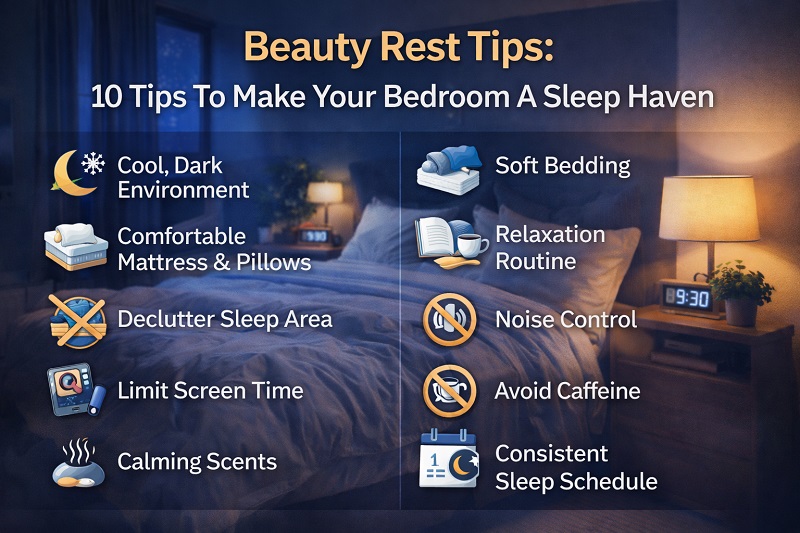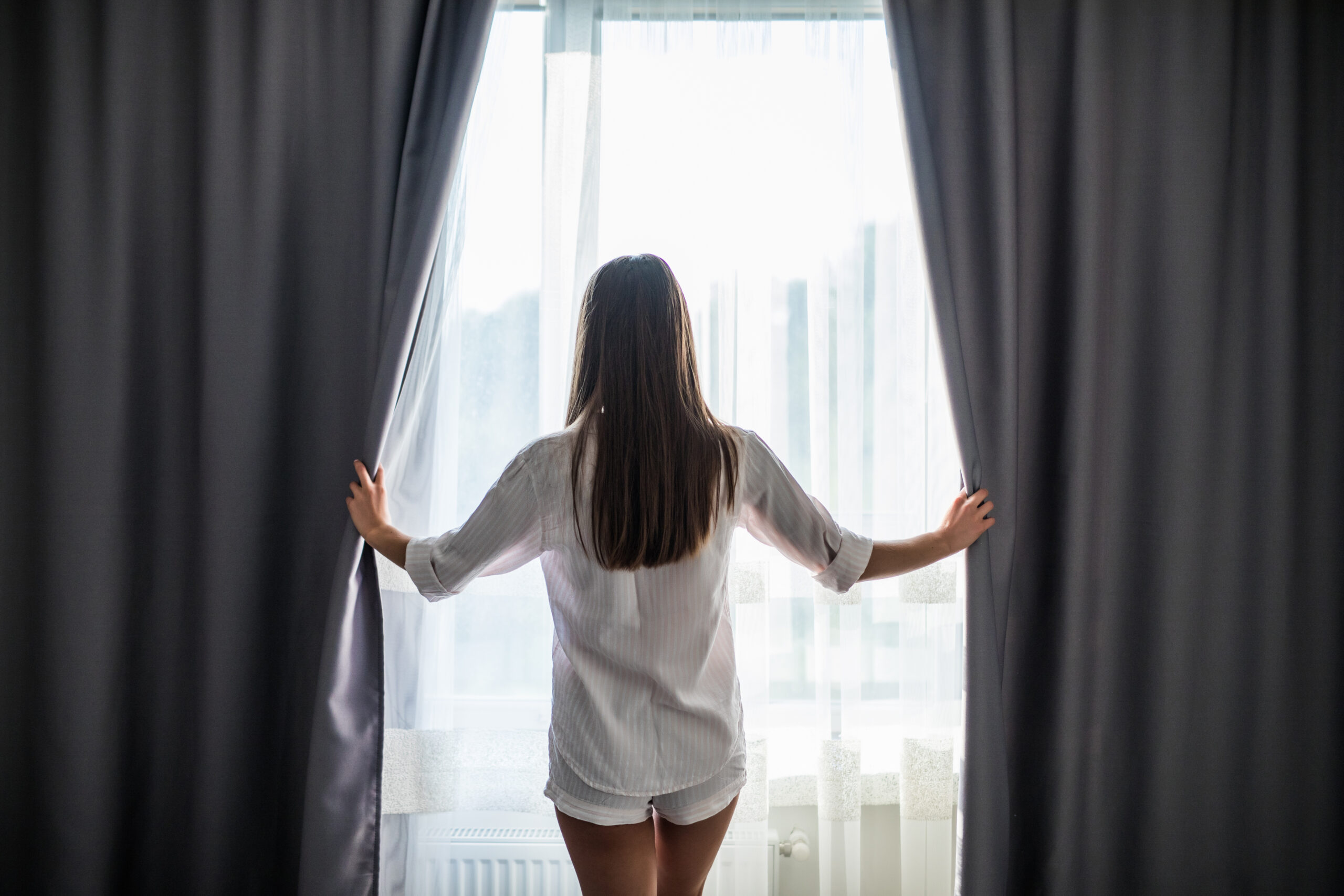
Beauty Rest Tips: 10 Tips To Make Your Bedroom A Sleep Haven
We know that sleeping is essential to our overall well-being. However, many of us don’t realize that the bedroom plays a crucial role in determining how well we sleep.
Have you taken a long, hard look at your bedroom? Do you think it is ideal for sleeping? If not, you should work on that right away. Make your bedroom a peaceful and conducive place to relax and a getaway from your daily stress.
Creating a bedroom for getting quality sleep will benefit you in so many ways. For starters, your stamina and memory will improve. You’ll also reduce stress and the risk of getting serious health problems such as high blood pressure, obesity, diabetes, depression, heart disease, and many others.
Here are ten ways you can turn your bedroom into a sanctuary for sleep.
#1. Keep your bedroom dark and quiet
Our body produces melatonin, a hormone that regulates your sleep and wake cycles. If there is too much noise or light in your bedroom, your body won’t produce this hormone to help you fall asleep. Light can interfere with the production of melatonin in your body.
So, consider using thick, heavy curtains to suppress the light in your windows. You can also use an eye mask to block any light source. Use a white noise machine or earplugs to block noise.
#2. Remove clutter in your bedroom
If your bedroom is littered with unnecessary things like your TV, newspapers or magazines, it’s better to put them someplace else. These items will only distract you from falling asleep. Eliminating clutter will help you focus on just one thing: sleep. If you have pets, it’s recommended to have them sleep in their own space because they may also disrupt your sleep.
#3. Invest in a comfortable and high-quality bed
Your mattress is the centerpiece of your bedroom. It also influences how well you sleep. So make sure you purchase a mattress that is comfortable and gives adequate support. Many people suffer from back aches and other types of body pains. So find a bed that can help relieve your pressure points. You should also buy pillows that can fully support your neck. Lastly, choose peaceful and calming colors for your pillow covers and bed sheets.
#4. Keep your bedroom at the right temperature
Experts suggest that you should aim for a bedroom temperature between 65 to 68 degrees Fahrenheit. If your room is too hot, your body will overheat, and you’ll break out in a sweat. This will keep you from falling asleep. If you don’t like to use air-conditioning, get a ceiling fan to help circulate the air in your room and use light sheets during the warm summer months.
#5. Put your electronic devices away
The blue light that emanates from your smartphone, tablet, laptop and other gadgets can distract you from sleeping. When you receive a text message or an email, you may find it hard to resist checking your messages just when you’re about to fall asleep. Try to put your smart device in airplane mode if you can avoid being apart from your mobile devices.
#6. Have a bedtime ritual
You should tune out from all distractions at least an hour before going to sleep. After you’ve spent some time watching TV or surfing the net, you should train yourself to wind down. Try taking a warm bath or massage yourself using lavender oil to soothe your body. You can also read a light novel to help you relax and feel sleepy.
#7. Wear loose-fitting sleepwear
Don’t wear tight-fitting or heavy pajamas. Uncomfortable clothes will hinder your body from reaching a relaxed state. Wear a cotton shirt that’s airy, light and does not feel constricting. You can even sleep in the buff. Some experts say that sleeping nude is even better.
#8. Place some plants in your bedroom
If you’re not allergic or sensitive, having flowers or plants near your bedside can freshen the air and release oxygen in your room. Your breathing will improve, and these plants can purify the air by eliminating toxins, especially when your room becomes stuffy.
#9. Keep a journal
Sometimes, we need to release stress after a long, hard day at work. Writing in a journal can help you get it out of your mind. Also, you can write your thoughts on how your day was or even make a to-do list for the next day. Writing is also another form of relaxation that can help calm your nerves.
#10. Try meditating
You can do simple meditation techniques while you’re in bed. Make sure you lie flat on your back. Keep your eyes closed. Relax every part of your body starting with your face, neck, shoulders and other muscles in your body.
For more deatials visit our website Home Improvement wow.

